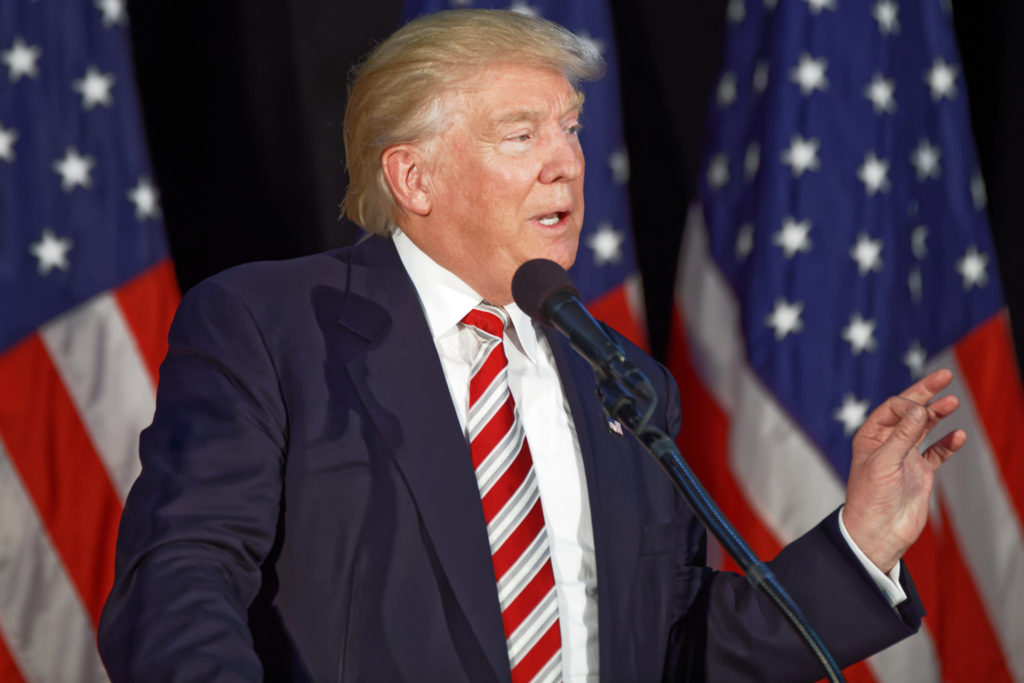On Tuesday, at one minute past midnight, the Trump Administration’s sanctions on Iran will be reimposed after being suspended by President Barack Obama under the 2015 nuclear agreement. The sanctions mean that Iran will be prohibited from trading and buying in U.S. dollars, all imports of Iranian-made products will cease, and licenses held by Iran to buy U.S. and European aircraft and parts will be revoked – a restriction that comes just days after Iran completed the acquisition of five new commercial planes from Europe, according to The Washington Post.
White House officials say the sanctions are being reinstated to force Tehran to address its nuclear program, which includes ballistic missile tests. Moreover, Washington is prodding them to change the government’s overall behavior, with the Administration openly siding with the Iranian protesters that have become enraged with the failing economy and human rights violations. Protests have broken out in Iran since the beginning of the year over high prices, water shortages, power cuts, and on-going government corruption.
“None of this needs to happen…The Iranian people should not suffer because of their regime’s hegemonic ambitions,” one official said, reportedly. “The president has been very clear.”
Furthermore, President Trump released a statement denouncing the Joint Comprehensive Plan of Action (JCPOA), better known as the Iran Nuclear Deal, but said that he was “open” to striking up a new agreement.
“The JCPOA, a horrible, one-sided deal, failed to achieve the fundamental objective of blocking all paths to an Iranian nuclear bomb, and it threw a lifeline of cash to a murderous dictatorship that has continued to spread bloodshed, violence, and chaos,” the President said.
If Iranian officials do not comply with the terms of the sanctions, they would be subject to “severe consequences,” Trump said in the statement.
Nevertheless, the President remains committed to find a deal that better serves the European countries that felt the Obama-era deal was vital to their security. Many in Europe have criticized the President for rescinding the deal, claiming the International Atomic Energy Association (IAEA) says Iran is following the terms of the 2015 agreement, opposing the re-imposition of economic sanctions. The White House, however, has reason to believe Iran’s activities show they are not adhering to policy.
Following the announcement and on track with their opposition to the sanctions, the European Union announced that it will institute a “blocking statute” that will attempt to annul any legal action brought on by the U.S. if European businesses facilitate trade with Iranian partners in-country.
EU partner nations have pressed that the lifting of sanctions has helped Iran rebuild its economy and that the Iranian nuclear program remains in existence for peaceful purposes. However, Iranian’s faltering economy comes as Tehran has ramped up military spending and funding to its nuclear program.
The President added, “As we continue applying maximum economic pressure on the Iranian regime, I remain open to reaching a more comprehensive deal that addresses the full range of the regime’s malign activities, including its ballistic missile program and its support for terrorism. The United States welcomes the partnership of likeminded nations in these efforts.”
The Administration did not go as far as calling for regime change, but does show a desire for the theocracy in Tehran to replaced by a government that does not suppress its people. Secretary of State Mike Pompeo has said that Iran’s clerical leaders are “bad actors,” reiterating that the White House is calling on Iran to “behave like a normal country.”
“The United States continues to stand with the long-suffering Iranian people, who are the rightful heirs to Iran’s rich heritage and the real victims of the regime’s policies,” Trump said in the statement. “We look forward to the day when the people of Iran, and all people across the region, can prosper together in safety and peace.”
The Washington Post reports that the White House hopes the sanctions will provide leverage over Tehran’s collapsing economy. The country’s currency, the rial, has fallen by about 26 percent over the past year, falling even more as deadlines for sanctions edge closer.
The economy has also languished as foreign companies become distraught with the corruption in Iran. Nearly 100 foreign businesses have announced their intention to leave the Iranian market.
“Foreign investors in Iran never know whether they are facilitating commerce or terrorism,” one official told reporters.
Amid heightened tensions with the U.S., Tehran has begun carrying out naval exercises in the Strait of Hormuz. In a report from Reuters, more than 100 vessels were involved in the drills, including small watercraft, which have appeared to have been designed to send a message to Washington over the sanctions.

